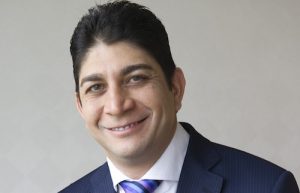
Cell C does not deserve an asymmetrical interconnect rate 10 years after entering the market and the decision to offer the company asymmetry is “not fair”.
That’s the view of MTN SA MD Karel Pienaar, who was reacting to the news that the Independent Communications Authority of SA (Icasa) would impose a series of cuts in termination rates over the next three years.
High termination rates — the fees operators charge to carry calls between their networks — have been blamed for keeping new competition from emerging in the telecommunications sector.
Icasa has decided to allow asymmetry for smaller players and those that don’t have access to the best radio frequency spectrum. As a result, companies such as Cell C, Telkom’s 8ta and Neotel will enjoy a wholesale tariff regime that is skewed in their favour. Vodacom and MTN will not benefit in mobile and Telkom has been excluded in fixed lines.
The move is designed to correct what Icasa has termed “market failure” and to encourage competition.
After 10 years, Cell C has only 10% market share and Neotel has struggled to make an impact in the consumer space.
Pienaar says MTN won’t challenge the rates in court, but he says the company is “not happy” with Icasa’s decision to impose asymmetry. “It makes no sense to have asymmetry for operators that have been in the market for 10 years.”

He says Cell C should have “invested a lot more” and that the reason it doesn’t have greater market share is that it hasn’t invested as much as its rivals in network infrastructure.
“To give Cell C an advantage at this late stage I don’t think is very fair,” Pienaar says.
Cell C CEO Lars Reichelt could not be reached on his mobile phone for comment.
Telkom, which recently launched mobile network 8ta, also should not be regarded as a new entrant, Pienaar says. It has the backing of a company with a strong telecoms pedigree.
However, he says he is pleased that Icasa has applied its mind and “come up with a recommendation that it thinks is in the best interests of the country”.
Meanwhile, Vodacom SA MD Shameel Joosub isn’t commenting on the asymmetry issue yet. He says only that Vodacom is “studying the provisions with respect to asymmetry and will comment on this at a later stage”.
Both MTN and Vodacom have warned that the cuts in mobile termination rates will not necessarily result in lower retail call prices for consumers.
But Joosub says it will foster competition, which, in turn, is “likely to lead to lower call charges” down the line.
Pienaar expresses a similar view, saying prices will come down because of increased competition, not regulatory interference in termination rates.
With Telkom’s entry into the market with 8ta, Pienaar says, SA has become “one of the most competitive markets in Africa”. — Duncan McLeod, TechCentral
- Subscribe to our free daily newsletter
- Follow us on Twitter or on Facebook




